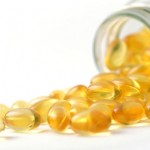JAPAN'S industrial output fell in June for the first time in five months, the government said yesterday as it released data highlighting the fragility of the recovery in the world's No. 3 economy.
Manufacturing slipped 3.3 percent from the month before in June and was 4.8 percent lower than a year before, the Ministry of Economy, Trade and Industry said.
Such indicators suggest weaker growth in China may be sapping some of the momentum from the recovery. Meanwhile, household spending remained weak, despite a slight increase in incomes in June.
However, other data showed the jobless rate edging down to 3.9 percent, its lowest level since October 2008, when the economy was slammed by the global financial crisis. The jobless rate had stayed at 4.1 percent during the previous few months.
The recent data have officials questioning whether the government should go ahead with a promised sales tax increase that economists say could derail progress in restoring growth and breaking free of deflation.
The central bank governor, Haruhiko Kuroda, said on Monday he believes the recovery is strong enough to weather a tax hike, which is needed to help redress ballooning deficits that have taken Japan's national debt to record high levels.
Prime Minister Shinzo Abe has claimed progress with his "Abenomics" strategy of fighting deflation with aggressive monetary easing and higher government spending. But he has indicated he may consider amending the plan for a 3 percentage point increase in the tax next that is slated for April.
Figures released earlier this month showed consumer prices rising 0.4 percent in June, but core inflation which excludes food and energy prices remained negative.
Costs for food and energy have largely been pushed higher by the sharp weakening of the Japanese yen, which drives up costs for imported food and energy in this resource-scarce nation.
Prices for desktop computers, imported ground meat and canned fish rose, along with electricity and gas rates. The rise in food prices extends across many categories, from jam to chicken powder, bread to salad dressing.
But prices for many other consumer goods, such as DVD players and digital cameras, have continued to fall. Overall, household spending fell 0.4 percent in June compared with the month before, despite double-digit increases for some items, such as beef, beer and sushi.
Fresh from a victory for his Liberal Democratic Party in upper house elections, Abe has acknowledged that despite signs of improvement, many Japanese have yet to feel a boost from his policies.










